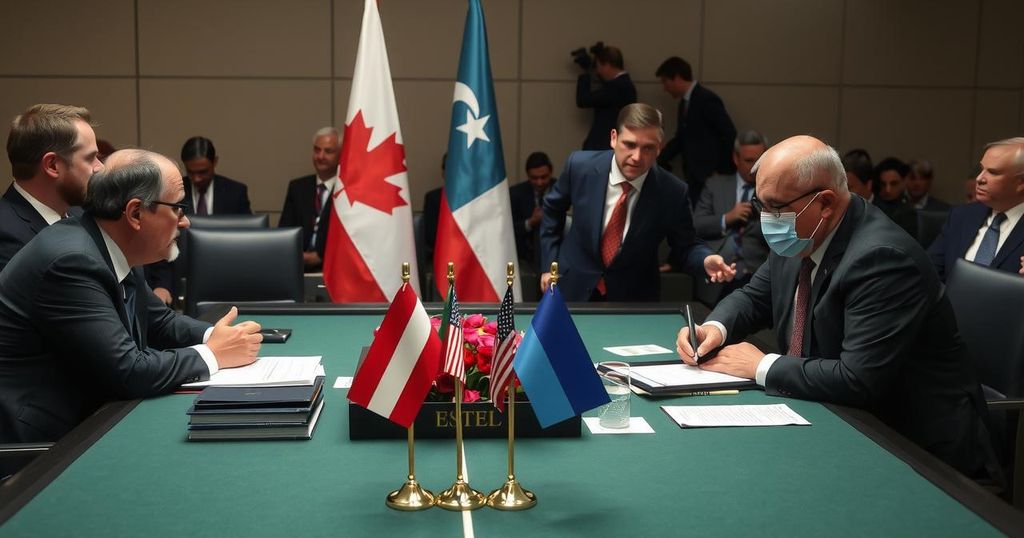Peace talks between Rwanda and the DRC mediated by Angola have been called off due to disagreements over negotiations with the M23 rebel group. Tensions remain high as military clashes continue, exacerbating a humanitarian crisis in the region.
Peace negotiations aimed at resolving the ongoing conflict between Rwanda and the Democratic Republic of the Congo (DRC) have encountered a significant setback, leading to the cancellation of a crucial summit in Angola. The Angolan presidency announced that the meeting, expected to involve crucial discussions on the M23 rebel group, would not occur as previously planned. Angolan President Joao Lourenco had been meeting unilaterally with DRC President Felix Tshisekedi, while questions remain regarding the attendance of Rwandan President Paul Kagame.
Despite initial optimism for an agreement to alleviate the humanitarian crisis in eastern DRC, the talks stalled over Rwanda’s insistence on direct negotiations between the DRC and the M23. Tensions escalated shortly before these negotiations, with fighting intensifying between the DRC army and M23 forces, further complicating the situation in a region plagued by conflict and dislocation. The DRC army has accused M23 of severe human rights violations, which the group has denied, labeling such claims as government propaganda.
The eastern DRC remains a battleground for numerous armed factions, including M23, which has been accused of seizing control over extensive regions, leading to massive displacement and humanitarian suffering. Rwanda has faced allegations of supporting M23, although it denies such claims while acknowledging its presence in eastern DRC as a security measure amid escalating tensions. Previous agreements aimed at disengaging Rwandan forces have yet to deliver lasting peace, as ceasefire violations continue to undermine prospects for tranquility.
The conflict in eastern DRC is characterized by the involvement of multiple armed groups, with M23 being a prominent faction that has garnered attention for its operations in the region. This area, rich in natural resources, has long faced instability fueled by competition for control among various militia groups and disputes over territorial claims. The humanitarian situation remains dire, with millions of people displaced and in urgent need of assistance as fighting disrupts daily life and safety. Diplomatic efforts, particularly by the African Union and facilitated by neighboring countries such as Angola, aim to broker peace and establish a framework for dialogue to resolve these long-standing tensions, although progress has often been hindered by distrust and allegations of external interference in the conflict.
The postponement of the peace talks between Rwanda and the DRC illustrates the complexities surrounding the ongoing conflict in the eastern part of the DRC. With entrenched positions on both sides, particularly regarding the involvement and negotiations with the M23 group, achieving a lasting resolution appears challenging. The international community continues to monitor the situation closely, emphasizing the need for comprehensive and effective diplomatic efforts to restore peace and address the severe humanitarian crisis affecting millions in the region.
Original Source: www.aljazeera.com






